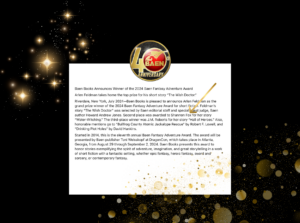The Glass Castle by Jeannette Walls
Jeannette Walls grew up with parents whose ideals and stubborn nonconformity were both their curse and their salvation. Rex and Rose Mary Walls had four children. In the beginning, they lived like nomads, moving among Southwest desert towns, camping in the mountains. Rex was a charismatic, brilliant man who, when sober, captured his children’s imagination, teaching them physics, geology, and above all, how to embrace life fearlessly. Rose Mary, who painted and wrote and couldn’t stand the responsibility of providing for her family, called herself an “excitement addict.” Cooking a meal that would be consumed in fifteen minutes had no appeal when she could make a painting that might last forever.
Later, when the money ran out, or the romance of the wandering life faded, the Walls retreated to the dismal West Virginia mining town—and the family—Rex Walls had done everything he could to escape. He drank. He stole the grocery money and disappeared for days. As the dysfunction of the family escalated, Jeannette and her brother and sisters had to fend for themselves, supporting one another as they weathered their parents’ betrayals and, finally, found the resources and will to leave home.
“I was sitting in a taxi, wondering if I had overdressed for the evening, when I looked out the window and saw Mom rooting through a Dumpster.”
If that first line doesn’t make you sit down and take notice, nothing will. From the very beginning of the book, it is clear that this is an unconventional story. Made all the more unconventional by the fact that hers is a true story.
I wouldn’t recommend reading this book if you’re also working on/trying to write your own book: you might just feel like giving up. Walls’s writing is rich and powerful, sophisticated and tender. She tells a difficult story with a beautiful brush. As she moves from innocent child, for whom her parents are God, to independent adult, who almost pities them, her narrative style never wavers. Her story is generous and harsh in all the right places. While her parents were far from perfect and her childhood years even less so, we are never given the sense that Walls particularly regrets the past. Rather, she almost looks on it as a sad and distant adventure.
There is no question that it irrevocably shaped who she is. But perhaps, it was for the better. To triumph over such deep adversity, truly, that makes a person.
I loved the idea of “The Glass Castle”, what it represents, how it keeps coming back in the story, and ultimately, that Walls chose to title her memoir The Glass Castle.
Between that first line and this last line, lies an extraordinary book.
“A wind picked up, rattling the windows, and the candle flames suddenly shifted, dancing along the border between turbulence and order.”




